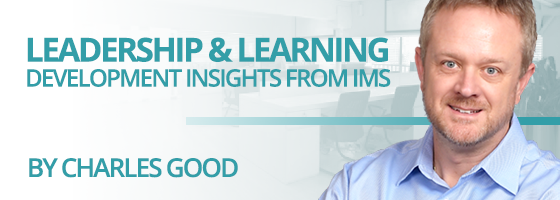Organizations spend billions providing their employees with development opportunities, and employees spend countless hours developing themselves through courses and trainings. So why do we not see greater results from these efforts? It may be that we are overlooking a critical element that is necessary if learning is going to stick and be applied, our mindset. Whether we believe we can learn, change and grow is largely determined by our mindset. So is your mindset serving you?
According to Carol Dweck, best-selling author of Mindset: The New Psychology of Success, there are two primary mindsets–fixed and growth. People with a fixed mindset obstruct their development through their belief in innate talent and fear of failure. On the contrary, people with a growth mindset work hard and train hard to ultimately realize their potential to the fullest.
FIXED MINDSET
A fixed mindset comes from the belief that your qualities are set, and cannot be changed. Your intelligence, personality, and creativity are fixed traits and can’t be further developed or improved. Some characteristics of individuals with this mindset are the following:
- They seek approval, not development.
- They believe they can only do things they show a natural aptitude for since practice does not make perfect.
- They need to show how talented and smart they are every chance they get.
“Smart people succeed,” says the fixed mindset. Therefore, if you succeed, you’re a smart person. Therefore, pick the easier problem, so success is more likely, and you validate your smartness. If you pick a hard problem, then you may fail, revealing your stupidity.
GROWTH MINDSET
A growth mindset comes from the belief that your basic qualities are things you can cultivate through practice and effort. Having a growth mindset encourages learning and effort. It is grounded in the belief that you can improve at anything, thereby fueling your desire to learn and practice. Some of the characteristics of individuals with a growth mindset are the following:
- They are always thinking about how they can eradicate their faults and weaknesses.
- They welcome problems and see them as challenges, not insurmountable obstacles.
- Failure is an opportunity, not a disaster. They analyze their mistakes and work even harder while taking advice from other people.
As Dweck states, the growth mindset believes ‘People can get smarter, and do so by stretching themselves and taking on challenges. Therefore, pick the hard problem – who cares if you fail!’
Institute for Management Studies educator and best-selling author Mike Robbins, shares a story in his book Bring Your Whole Self to Work that centers around a simple, yet dangerous, question we often ask ourselves that can change your mindset. That question is, “Why is this happening to me?” He goes on to say that if we change one word in this question, change the ‘to’ to ‘for’, it will change the way we relate to the current challenge we are facing.
So ask yourself, is your mindset is serving you? The benefits of a growth mindset are enormous in terms of learning, dealing with failure, and personal growth. And the first step in developing this mindset in yourself is to pay attention to your words and thoughts. Do you praise yourself for effort or smarts? Do you embrace challenges and look at failures as learning opportunities? Becoming aware of your limiting thoughts is the first step in adopting a mindset that serves you.
ADDITIONAL LEARNING RESOURCES
Check out the IMS podcast episode profiling Mike Robbins. You may also want to view some of my previous articles on How Focus Leads to Success, or Developing Mental Models to Improve Thinking.
ABOUT CHARLES GOOD
Charles Good is the president of The Institute for Management Studies, which provides transformational learning experiences that drive behavioral change and develop exceptional leaders. Charles is an innovative and resourceful leader who specializes in bringing people together to develop creative organizational and talent strategies that enable business results. His areas of expertise include assessing organizational skill gaps and leading the design, creation and delivery of high impact, innovative learning solutions that achieve business goals.

1 Comment